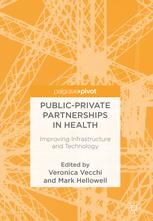If You Want to Expand PPPs, Expand Competencies First
"Public-Private Partnerships (PPPs) are complex contracts and undoubtedly many errors have been made in the past, thus casting some doubts on their value for money and affordability", Veronica Vecchi, Professor of Public Management and Business Government Relations at SDA Bocconi School of Management, says. "However, the non-affordability and non-value for money of PPPs in the healthcare sector has been mainly generated by wrong policy planning, lack of skills in the public sector and a lot of moral hazard in the market. We need more PPPs across the world, for the micro-economic benefits of the PPPs (the opportunity to get on-time, on-budget, on-quality and more efficient projects), but also because PPPs represent an interesting asset class for investors. However, to make the PPPs a sustainable solution, we need to innovate the model. It means that we need less cement and more innovative solutions, which can support healthcare organizations and systems to become more efficient, effective and inclusive". Bocconi Knowledge reproduces an excerpt from the Introduction to Veronica Vecchi; Mark Hellowell (Eds): Public-Private Partnerships in Health, 2018, with permission of Springer Nature. The book is available here
Increasingly, health sector policymakers deliver their objectives via public-private partnerships (PPPs) in which private companies are contracted to carry out a range of activities, including the delivery of physical assets- infrastructure and technologies-and related clinical and non-clinical services. Although large-scale and routinised use of PPPs originated in advanced economies such as Australia, Canada, France, Italy and the UK, it has recently expanded to many countries in which experience with public-private engagement is far more limited. In the latter case, PPPs- which enjoy influential support from multilateral development agencies and the World Bank in particular-often form part of broader efforts to enhance the role of the private sector in the implementation of health system's strengthening goals.
Due to the long-term character, financial complexity and risk-allocation mechanisms of the PPP model, it represents the most complex form of contracting transaction yet to have emerged in the health sector. As the model expands into new markets, and is also newly adopted by health agencies within countries where the model is already established, there is a recognition among scholars and practitioners alike that the competencies currently existing within the public sector are inadequate to the task of designing and implementing PPPs in which the general welfare of the population is safeguarded and advanced. A considerable amount of effort has been exerted by international financial institutions and other supranational entities to address this capacity gap. The World Bank, most notably, has published numerous manuals, guidelines and literature reviews which address the high-level challenges faced by policymakers. Now, the challenge is to draw on and supplement that knowledge in defining the lessons for those at the front line-the managers of public authorities and the business that are at the front line of project delivery, and to make those lessons relevant to address the specific challenges in the health sector.
A considerable amount of effort has been exerted by international financial institutions and other supranational entities to address this capacity gap. The World Bank, most notably, has published numerous manuals, guidelines and literature reviews which address the high-level challenges faced by policymakers. Now, the challenge is to draw on and supplement that knowledge in defining the lessons for those at the front line-the managers of public authorities and the business that are at the front line of project delivery, and to make those lessons relevant to address the specific challenges in the health sector.
Based on over ten years of focused work on PPPs in the sector (as researchers, instructors and consultants), this book synthesises and distils the knowledge and experience accumulated by the two authors, Veronica Vecchi and Mark Hellowell, alongside that provided by others, with the aim of providing a clear guide to all actors (policymakers, managers and private companies) in the PPP domain. The goal is to produce a reference guide in which core principles, rooted in theory, evidence and practice, are articulated in a way that makes them operationally relevant to all PPP stakeholders.
Veronica Vecchi is Professor of Public Management and Business Government Relations at SDA Bocconi School of Management.
Mark Hellowell is Senior Lecturer at the University of Edinburgh